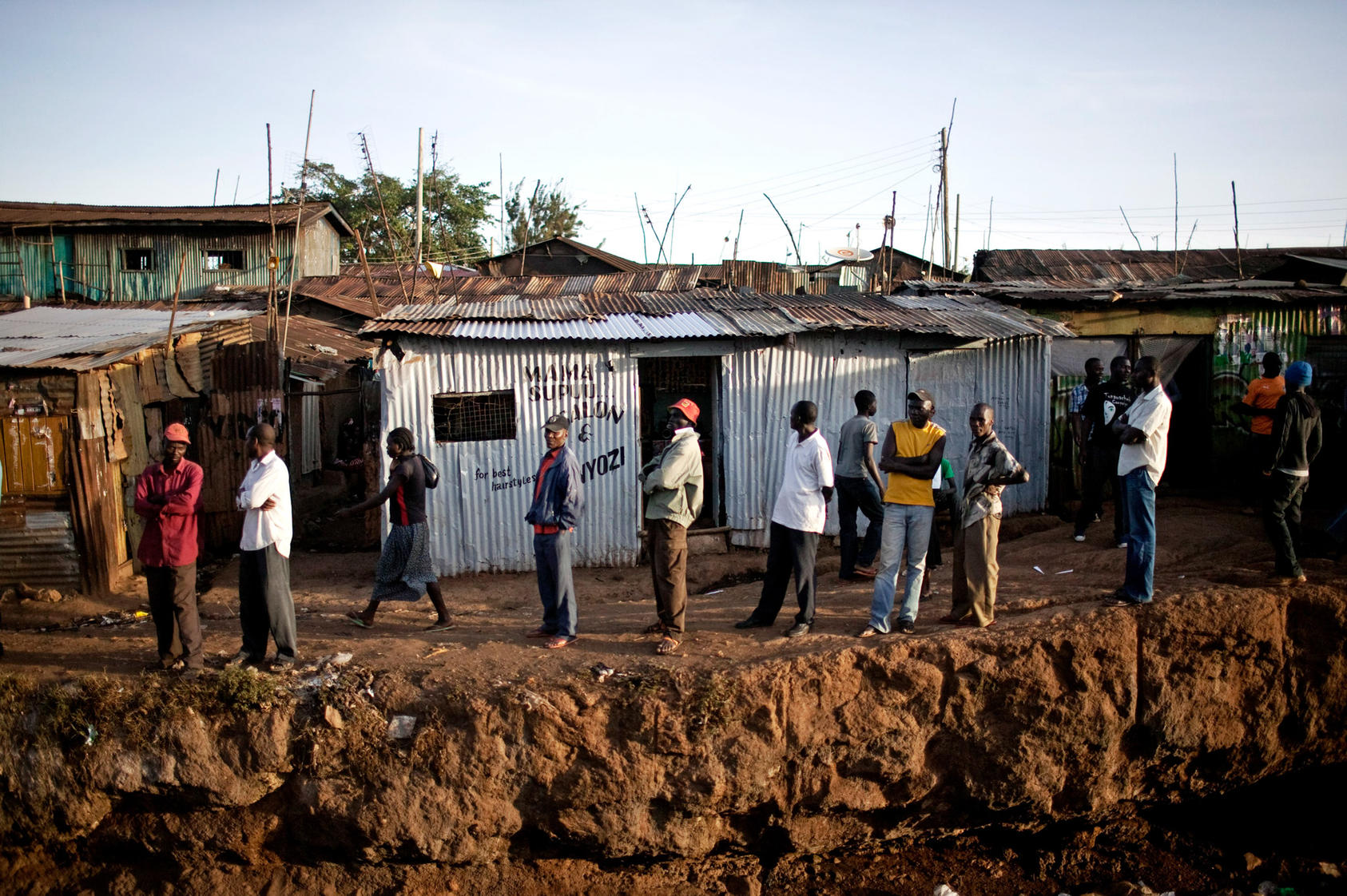USIP’s Carson, Stigant, Claes, Verjee Analyze the Ramifications of the Decision
Kenyan President Uhuru Kenyatta called for calm after the country’s Supreme Court annulled his re-election, citing “irregularities.” He said he would accept the court’s order for a new election, similarly to the decision last month by his opponent, Raila Odinga, to challenge the election results in court rather than mobilizing mass demonstrations that could have risked widespread violence. USIP experts Ambassador Johnnie Carson, Susan Stigant, Jonas Claes and Aly Verjee examine the ramifications of the Supreme Court decision.

Kenyans on August 8 re-elected Uhuru Kenyatta, the son of the country’s first president, to a second term with a reported 54.2 percent of the vote, according to the country’s electoral commission. Raila Odinga, losing his fourth bid for the presidency, was said by the election commission to have captured 44.7 percent.
In 2007, allegations of ballot fraud fueled a deadly post-election conflict that took as many as 1,300 lives and disrupted the economy. This year, at least 24 deaths were tied to post-election violence as protesters and police classed in opposition strongholds following Odinga’s public accusations of fraud.
Carson is a former assistant secretary of state for Africa and a senior advisor to the president of USIP; Stigant is USIP’s director of Africa programs and an expert on constitutional reform and national dialogue; Claes is a senior program officer whose focus includes election-related violence; and Verjee is a visiting expert specializing in the politics of East Africa.
Carson:
The Kenyan Supreme Court decision to nullify the country's presidential elections comes as a major surprise, especially since most of the domestic and international election observers judged the election to be credible, transparent and largely peaceful. A generally reliable and independent parallel vote tabulation carried out also reflected a victory by President Kenyatta.
A new election is likely to produce the same result, and once again raise the specter of post-election violence. The Kenyan election was probably one of the most complex elections ever carried out in Africa, and there clearly were some procedural and administrative errors at the end of the process. But none of those pointed to widespread rigging or a manipulation of the tally.
The Supreme Court probably nullified the elections because the election commission did not follow all of its legal, constitutional and administrative procedures, and not because it found substantial rigging or manipulation.
The decision of the president and the opposition to accept the court's decision is a reflection of the maturity of Kenya's democracy. But the prospect of running a new election will renew the specter of pre- and post-election violence.
But if the election observers were right, the outcome is likely to be the same—a victory for President Kenyatta.
Stigant:
The risks of election violence should be reassessed for the new vote to identify potential hotspots and then match prevention efforts to them. In the period leading up to the general elections, risks for violence related to both local and national elections. Those risks will shift given that the local elections and parliament will not be re-run.
International partners – from the US to the African Union - concentrated efforts to encourage peaceful elections. Those same efforts will be needed leading up to the new voting, counting, tabulation and announcement of results, including support to party agents and civil society efforts. This will require additional financial and technical support to increase the chance of a credible and peaceful outcome.
As campaigning resumes, we should closely monitor the degree to which the candidates uphold their commitment to peaceful messaging and the degree to which they discuss issues. This would be an important point of development for Kenyan democracy. Aly Verjee’s recent analysis showed that voting extended beyond tribal lines and typical voting areas.
For the election commission to sustain and strengthen the trust of the Kenyan people, clear and consistent communication will be critical.
Claes:
The Supreme Court decision steers Kenya into uncharted territory and creates new risks of violent conflict. But this also can open opportunities to solidify Kenyan democracy and the integrity of Kenyan elections. The verdict demonstrates the independence of the judiciary, and will further encourage the election commission to improve its role in voter registration and the transmission of results.
This decision sets an important precedent, as it indicates to candidates around the world that taking disputes to court, rather than fighting it out in the streets, can actually pay off, even if there are concerns about the independence of the judiciary.
The ruling also raises significant questions about the role of the international and domestic election observers who almost unanimously validated the electoral process.
Verjee:
The Supreme Court has not specified the irregularities that led to the decision to invalidate the election, but the main candidates have accepted the court's decision. That is a victory for the rule of law.
President Kenyatta remains the favored candidate in the race. The court found no evidence of misconduct by him, and if the August 2017 results are broadly accurate, he achieved a sizeable majority over Odinga and increased his share of the vote in more counties across the country than Odinga.
The electoral commission now must work hard to regain the trust of the Kenyan public and political parties, if the outcome of the election re-run is to be widely accepted. Election observers will need to pay particular attention to the tabulation and transmission of results. Those are electoral activities that suffered serious difficulties in the August elections.